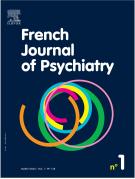Gifted and addicted: Integrative psychotherapy for emotion regulation and social communication skills - 29/05/20
Résumé |
M.M. consulted SITED, at the age of 46, in search of a developmental diagnosis, which could explain his difficulties in social communication. Psychiatric and neuropsychological evaluations led to the hypothesis of giftedness. Indeed, behavioural particularities in childhood and adolescence, along with an IQ of 137 in adulthood confirmed this hypothesis. M.M. complains about interpersonal difficulties, which he attributes to his lack of communication tools. He expresses difficulties in identifying his own feelings as well as physical sensations linked to his emotional state. He characterises himself as indifferent and seems to be having difficulty expressing his own feelings. His major difficulty is the absence of functional and affective communication with his wife. M.M. presents cognitive and behavioural impulsivity frequently found in gifted individuals [1] but also addicts [2]. His addictive behaviour was firstly observed at the age of 12 and was present throughout his life in different forms: alcohol, cannabis, ecstasy, sports, sex and gambling. General cognitive evaluation showed no deficits in intellectual efficiency, memory, attention, perception, executive functions, theory of mind and in identifying other's emotions. However, M.M. presents difficulties identifying his own emotions and suffers from low sensation of well-being. In view of M.M.’s specificities, classic psychotherapy did not seem adequate. Therefore, an integrative psychotherapeutic approach centred on emotions was proposed. Psycho-education, cognitive and behavioural therapy, dialectic therapy, psychosomatic therapy and mindfulness were used in each of the steps according to M.M.’s psychological dynamic and emotional state. TAS-20 [3] and WEMWBS [4] were used in order to objectify and quantify his progress. Each evaluation was conducted every three months. Therefore, from March 2019 till June 2019, M.M. presented less signs of alexithymia with a difference of 18 points whilst the sensation of well-being remained low. A third evaluation is scheduled for October. Qualitative evolution was however remarkable: cessation of addictive behaviours, better functional and affective communication with his wife, implementation of affirmation abilities and introspection. M.M. seems to be well and on the way to self-discovery.
Le texte complet de cet article est disponible en PDF.Keywords : Integrative psychotherapy, Emotion regulation, Social communication
Plan
Vol 1 - N° S2
P. S99-S100 - décembre 2019 Retour au numéroBienvenue sur EM-consulte, la référence des professionnels de santé.
L’accès au texte intégral de cet article nécessite un abonnement.
Déjà abonné à cette revue ?


